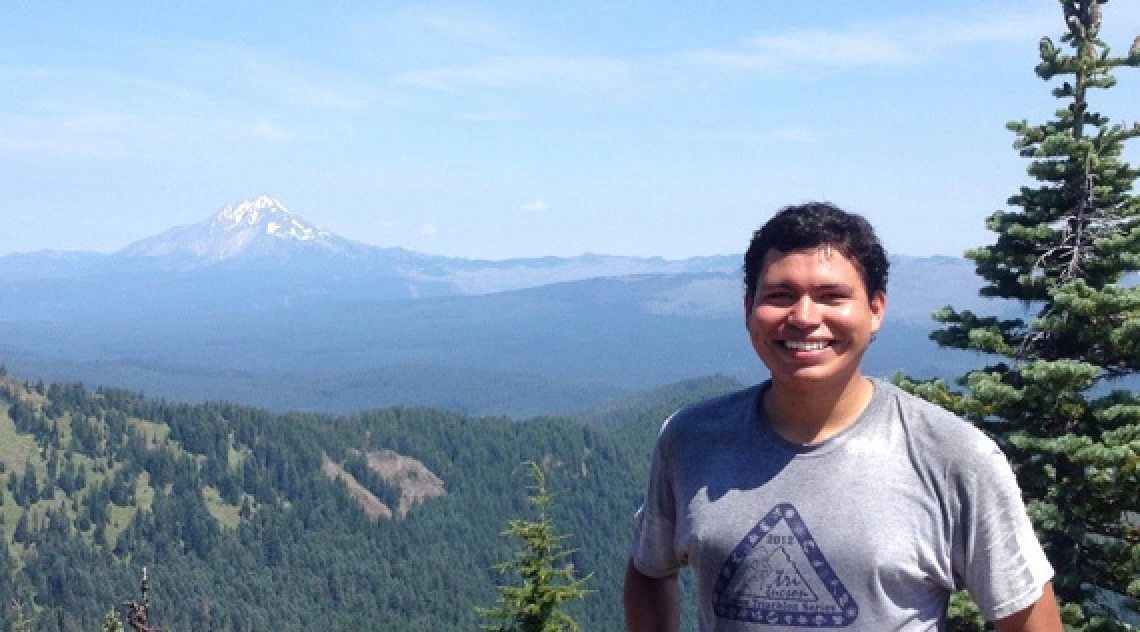SRP Trainee Performs KC Donnelly Externship at Oregon State University

Christopher Olivares, a University of Arizona Superfund Research Program (UA SRP) graduate trainee, received a KC Donnelly Externship Award to perform research with Oregon State University SRP Director Dr. Robert Tanguay. He travelled to Corvallis, OR, for six weeks in July-August 2014.
At Oregon State, Olivares was trained in Dr. Tanguay’s lab in the Sinnhuber Aquatic Research Laboratory to use an in vivo zebrafish embryo ecotoxicity assay. This high-throughput assay allowed him to evaluate the toxicity of nitroaromatic compounds and their microbial transformation products. Such an approach complemented his graduate work in the UA SRP characterizing the fate of such munitions compounds using biotransformation assays in microorganisms. He said the novel ecotoxicity technique using zebrafish helped him to appreciate the broader significance of pollutant exposures to multicellular organisms in the environment.
Olivares says of receiving the award, “the KC Donnelly Externship was a unique opportunity as a graduate student,” in which he was able to generate data, gain technical skills, and build his professional network. “Before I arrived to Corvallis, I had never seen fish embryos under the microscope or used a multi-channel pipette! But being serious, I enjoyed being able to get my feet wet in toxicology and above all, to learn from others at the lab and to develop long-lasting friendships.” While in Corvallis, he explored the outdoors and joined the local underwater hockey club.
The KC Donnelly Externship is an NIEHS administrative supplement given in honor of Dr. K.C. Donnelly, a long-time SRP investigator and mentor at Texas A&M University, who passed away in 2009. It is designed to provide SRP trainees with translational/transdisciplinary opportunities at other SRP centers or agencies. Olivares says he believes that “the externship will allow further collaboration between the University of Arizona and the Oregon State University Superfund Centers, which in turn will create interdisciplinary approaches to pressing environmental issues.”


